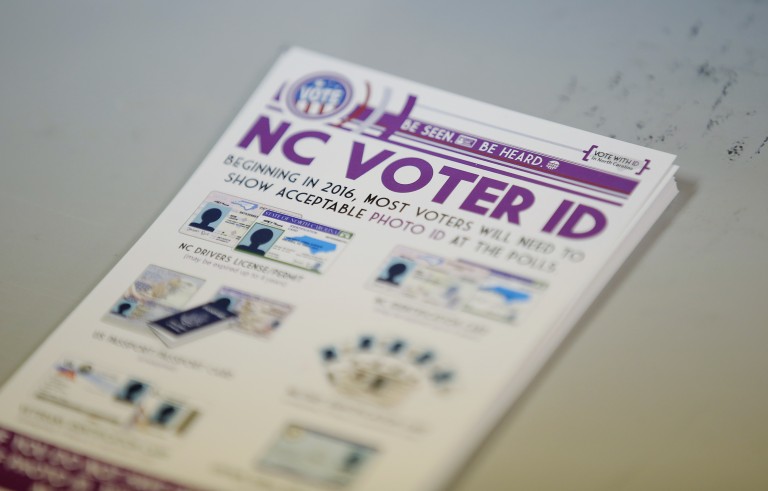ALISON STEWART, PBS NEWSHOUR WEEKEND ANCHOR: For the first time in a presidential election, nine more states are enforcing new laws requiring eligible voters to present a government-issued photo ID at the polls. That includes New Hampshire, Virginia, Wisconsin and Texas.
The laws, which have been controversial, were ostensibly put in place to thwart voting irregularities, but voter identity isn't the only issue in the spotlight this election season.
To help us delve into these questions, I am joined here in the studio by Wendy Weiser. She directs the democracy program at the Brennan Center for Justice at New York University Law School.
Let's talk about North Carolina and the voter ID laws there. Do people have to show photo ID?
WENDY WEISER, BRENNAN CENTER FOR JUSTICE: Absolutely not. That was struck down, along with the rest of the new restrictive voting laws in North Carolina. And I do want to make it clear to your listeners and watchers that even though there have been new voting restrictions put in place in states across the country and even though some of them have not been struck down by the courts, people should not worry. For most people they are not going to experience barriers voting. It is still reasonably easy to vote and they should check their voter registration status, make a plan and get out there and vote.
ALISON STEWART: Let me talk to you about Texas. Texas had what some called a strict voter ID law, but the court said you have to make accommodations for those who don't have a photo ID, a government photo ID, have those accommodations been met? Is this being handled correctly?
WENDY WEISER: You should not have to show say a photo ID to vote in Texas right now, if you face some kind of burden, reasonable impediment to obtaining an ID. So, under the law and under a court victory right now, voters have another process where they can go through where they sign an affidavit explaining what their difficulty is obtaining that ID, and they should be able to cast a regular ballot that will count just like everybody else.
ALISON STEWART: Even if someone tells you something else or if you see an outdated poster.
WENDY WEISER: Yes. Early voting has started in Texas as well last week, and there were more than a dozen counties where there was incorrect signage, incorrectly telling people they must show a photo ID to vote. There were places like in Harris County, Texas, where there were election officials walking up and down the line telling people they need a photo ID. In none of these cases did they tell people about the other process that's available if you don't have these IDs.

ALISON STEWART: Let's talk about the physical act of voting. I know the Brennan Center has been talking about investigating the actual physical machines which in many states are a decade old.
WENDY WEISER: One problem that we are concerned about this year and really going forward is that in 42 states, we found, states are using machines that are 10 or more years old, and that is close to or passed the projected life span of those machines. And what we expect to see — and I think we're already seeing — are breakdowns, malfunctions, like vote flipping, where you try to press a vote for one candidate and it appears for another candidate. You know, we hope that now and having encouraged election officials to be prepared, so that if there are these kinds of problems, the machines can be immediately decommissioned, replaced with other machines. There are backup paper ballots or other processes in place. But this is a big problem that we're concerned about and something we really do need to address right after Election Day.
ALISON STEWART: Quick question — is hacking an issue? Hacking of voting machines?
WENDY WEISER: Absolutely not. This is not something that people need to be concerned out. Ere were reports of hackers actually obtaining access to voter registration databases in 20 states earlier, and that's made people really worried. But we are able to detect those. There was no tampering.
But more importantly, voter registration databases are connected to the Internet. Voting machines should never be — which means that no one sitting in a basement in Moscow or anyone else should be able to access your voting machine.
So this is not something that security experts think is a credible threat to our election integrity right now.
ALISON STEWART: Wendy Weiser, thanks so much.
WENDY WEISER: Thank you for having me.













